Добро пожаловать в мой блог!
Прежде чем мы погрузимся в контент, я бы хотел, чтобы вы присоединились ко мне на моих платформах социальных сетей, где я делюсь новыми идеями, взаимодействую с сообществом и публикую обновления. Вот как вы можете связаться со мной:
Фейсбук: https://www.facebook.com/profile.php?id=100072217509763
LinkedIn: https://www.linkedin.com/company/74949059/admin/dashboard/
Ютуб:https://www.youtube.com/@tractormanufacturer-lc5qz
ТикТок: https://www.tiktok.com/@tractormanufacturer
Теперь давайте начнем наше путешествие вместе. Надеюсь, вы найдете здесь контент проницательным, интересным и ценным.
Введение
Excavators are essential machines on construction sites, offering incredible versatility for digging, lifting, and moving materials. However, much of the efficiency of an excavator depends on the type of bucket attached. Different excavator bucket types are designed for specific tasks, and choosing the right one can significantly impact the performance and productivity of a project. In this blog, we will explore everything you need to know about excavator bucket types, their uses, advantages, and how to select the best one for your needs.
Overview of Common Экскаватор Bucket Types

General Purpose Buckets
General purpose buckets, also known as GP buckets, are the most common type of excavator bucket. They are designed for a wide range of tasks, including digging, loading, and moving soil, gravel, and sand. These buckets are versatile and suitable for most construction and excavation projects. Their sturdy construction allows them to handle moderate workloads without excessive wear and tear.
General purpose buckets usually feature a standard cutting edge and are available in various sizes to match different excavator models. They are ideal for operators who need a bucket that can perform well in a variety of conditions and applications.
Ковши для тяжелых условий эксплуатации
Heavy-duty buckets are built for tough environments where the material being handled is abrasive or challenging to work with. These buckets are reinforced with thicker steel and additional wear plates to withstand the harsh conditions of rock, clay, and compacted soils. Heavy-duty buckets are commonly used in mining, quarrying, and demolition projects, where durability is critical.
Due to their robust design, heavy-duty buckets are more resistant to damage and require less frequent maintenance. However, they are heavier than general purpose buckets, which can affect the overall performance and fuel efficiency of the excavator.
Rock Buckets
-
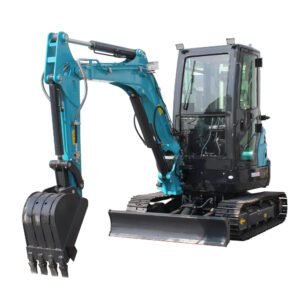 3,5-тонный экскаватор
3,5-тонный экскаватор -
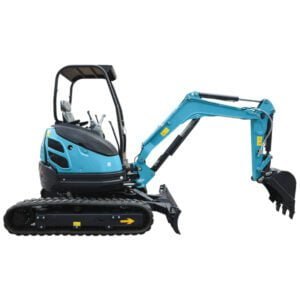 Индивидуальный производитель экскаваторов 2,5 т
Индивидуальный производитель экскаваторов 2,5 т -
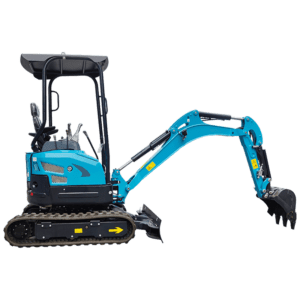 Индивидуальный производитель мини-экскаваторов 2,0 т
Индивидуальный производитель мини-экскаваторов 2,0 т -
 Китайский завод мини-экскаваторов 1,7 т
Китайский завод мини-экскаваторов 1,7 т -
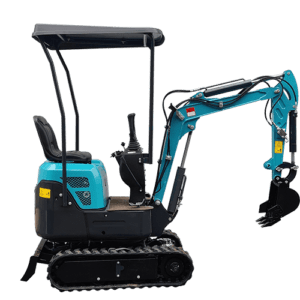 Китай 1.0T Мини-экскаватор Производитель
Китай 1.0T Мини-экскаватор Производитель -
 Компания по производству мини-экскаваторов 2,5 т на заказ
Компания по производству мини-экскаваторов 2,5 т на заказ -
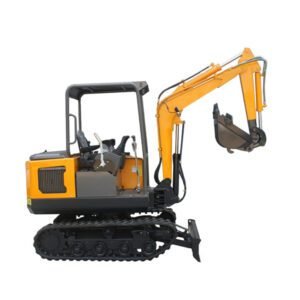 Компания по производству мини-экскаваторов Odm 2.0T
Компания по производству мини-экскаваторов Odm 2.0T -
 Китайская компания по производству мини-экскаваторов 1,2 т.
Китайская компания по производству мини-экскаваторов 1,2 т.
As the name suggests, rock buckets are specifically designed for handling large rocks and other hard materials. These buckets feature a reinforced structure and sharp teeth to penetrate rocky terrains and handle heavy, abrasive materials. Rock buckets are typically used in mining, quarrying, and construction projects where rocks need to be moved or broken up.
Rock buckets often have a more aggressive design, with stronger cutting edges and larger teeth to break through hard surfaces. They are built to handle high-impact work and can withstand the constant stress of lifting heavy rocks and boulders.
Ковши для рытья траншей
Trenching buckets are narrower than standard excavator buckets and are used for digging trenches for utility lines, pipes, and drainage systems. The narrow width allows for precise digging, making them ideal for projects that require straight, clean trenches. Trenching buckets typically come with sharp edges and teeth to cut through soil efficiently.
In addition to their digging precision, trenching buckets are designed to minimize soil spillage, ensuring that the excavator can create clean, well-defined trenches. They are widely used in the installation of irrigation systems, water lines, and underground utilities.
Grading or Cleanup Buckets
Grading or cleanup buckets are wider and smoother than other types of excavator buckets. They are designed for leveling, grading, and cleaning up job sites. These buckets usually lack teeth and have a flat edge, making them ideal for finishing work, such as smoothing out soil or preparing a site for landscaping.
Grading buckets are also used for loading and moving light materials like sand, gravel, or snow. Their wider profile allows operators to cover a larger surface area, making them more efficient for tasks that require precision and finishing touches.
Table: Comparison of Excavator Bucket Types
| Bucket Type | Основное использование | Лучшее для | Преимущества | Disadvantages |
|---|---|---|---|---|
| General Purpose Bucket | Versatile, all-purpose digging and loading | Most standard construction tasks | Versatile, durable | Not specialized for tough materials |
| Heavy-Duty Bucket | Tough environments, abrasive materials | Mining, demolition, quarrying | Extremely durable, resistant to wear | Heavier, reduced fuel efficiency |
| Rock Bucket | Handling large rocks and hard surfaces | Mining, quarrying, rock excavation | High strength, large teeth for rocks | High maintenance, heavy |
| Trenching Bucket | Digging precise trenches | Utility installation, drainage projects | Narrow design for precision digging | Limited to trenching applications |
| Grading Bucket | Smoothing, leveling, cleanup | Landscaping, site preparation | Wide coverage, efficient for leveling | Not suitable for heavy digging |
How to Choose the Right Excavator Bucket Type
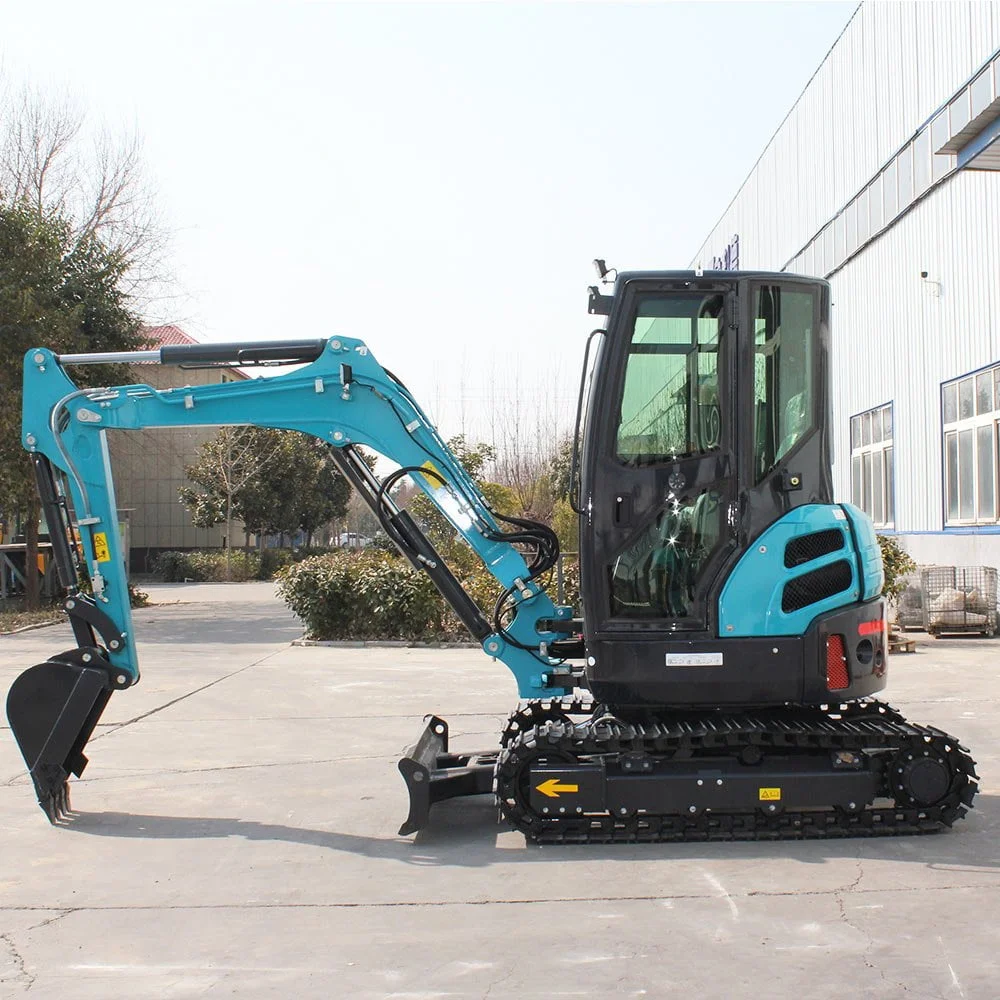
Factors to Consider When Selecting an Excavator Bucket
Selecting the right excavator bucket depends on several factors, including the type of material you will be handling, the specific tasks you need to perform, and the conditions of the job site. Here are some key considerations when choosing the right bucket for your project:
- Material Type: The type of material you’re working with (e.g., soil, rock, sand, or gravel) plays a crucial role in selecting the appropriate bucket. For example, a rock bucket is ideal for breaking up and moving rocks, while a grading bucket is better for smoothing and leveling soil.
- Excavator Size: The size and weight of the bucket must be compatible with your excavator. Overloading an excavator with a bucket that is too large or heavy can reduce efficiency and increase wear and tear on the machine.
- Project Requirements: Consider the specific tasks you’ll be performing. A trenching bucket is perfect for digging narrow trenches, while a general purpose bucket may be better suited for all-around tasks like digging and loading.
- Durability and Maintenance: Some buckets, such as heavy-duty and rock buckets, are built for durability but may require more maintenance due to the wear and tear they experience in tough conditions. Weigh the long-term cost of maintenance against the benefits of increased durability.
Matching Excavator Bucket Types to Project Needs
Different projects have different demands, and matching the right bucket to your project is essential for maximizing efficiency and minimizing downtime. For example, if you are working on a large-scale construction project that requires a variety of tasks, a general purpose bucket may offer the versatility you need. However, if your project involves moving large amounts of rock or heavy debris, a rock bucket or heavy-duty bucket would be more appropriate.
When planning your project, assess the specific requirements and determine whether multiple bucket types are necessary. Many operators opt for a combination of general purpose and specialized buckets to handle different phases of a project, such as excavation, material handling, and site preparation.
Вывод
Choosing the right excavator bucket type is crucial for maximizing productivity and efficiency on the job site. Each bucket type offers specific advantages, whether you’re digging, grading, or moving heavy materials. By understanding the differences between excavator bucket types and matching the right bucket to your project’s needs, you can enhance the performance of your excavator and ensure the success of your project.
Вопросы-Ответы
What are the most common excavator bucket types used in construction?
The most common excavator bucket types include general purpose buckets, heavy-duty buckets, rock buckets, trenching buckets, and grading buckets.
How do I choose the right excavator bucket types for my project?
The choice of excavator bucket types depends on the type of material, project requirements, and the size of the excavator. Consider the specific tasks and durability needs.
What are the differences between excavator bucket types?
Excavator bucket types differ in design and use; general purpose buckets are versatile, while rock and heavy-duty buckets are built for tough materials, and trenching buckets offer precision digging.
Can I use multiple excavator bucket types on the same machine?
Yes, many excavators are compatible with various bucket types, allowing operators to switch between different excavator bucket types depending on the task.
Which excavator bucket types are best for handling heavy materials like rocks?
Rock buckets and heavy-duty buckets are the best excavator bucket types for handling heavy, abrasive materials like rocks.
How do I maintain different excavator bucket types?
Maintenance of excavator bucket types involves regularly inspecting for wear, sharpening teeth, and checking for cracks, especially in buckets used in abrasive conditions.
What are the most durable excavator bucket types for mining applications?
Heavy-duty and rock buckets are the most durable excavator bucket types for mining, as they are reinforced for tough, abrasive environments.
Which excavator bucket types are ideal for landscaping work?
Grading or cleanup buckets are the preferred excavator bucket types for landscaping, as they provide a wide, flat surface for leveling and site preparation.
Can I customize excavator bucket types for specific tasks?
Yes, many manufacturers offer custom excavator bucket types designed for specific tasks, including specialized widths, teeth, and reinforcement.
What factors influence the cost of different excavator bucket types?
The cost of excavator bucket types is influenced by size, material strength, reinforcement features, and the specific type of bucket (e.g., rock, trenching, or heavy-duty).





-1.png)